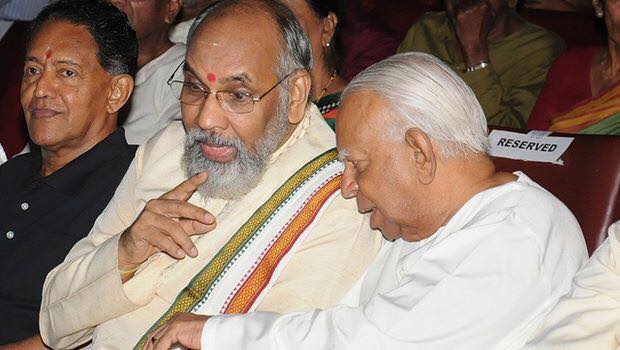Further Disregard Of Tamil Polity Will Further Justify Federalism

By Jehan Perera –April 25, 2016
The Northern Provincial Council led by its Chief Minister C. V. Wigneswaranhas passed a resolution for the government to take up in the constitutional reform process. The main feature of the resolution is to merge the Northern and Eastern provinces into a single federal unit. This has been the long standing position of the Tamil polity which came into national prominence in the aftermath of the passage of the “Sinhala only” law in 1956 by which English was replaced by Sinhala as the sole official language of the country. The language law was a measure that was resisted by the entirety of the Tamil-speaking polity which numbered about 30 percent of the country’s population at that time and wished that Tamil too should be an official language. As the Sinhala population was numerically dominant, the Sinhala only law won easy passage in parliament.
The rationale for federalism in the context of Sinhala-Tamil conflict is that the Tamil people, being a regional majority in the Northern and Eastern provinces, will also be the political majority in those two provinces. They can therefore make their own decisions in the regional unity, without being subordinate to the Sinhala majority in the country taken as a whole. The attractiveness of federalism as a political solution to those who are a numerical minority in the country as a whole but are also a regional majority is that it guarantees that the central authorities cannot arbitrarily and unilaterally impose their decisions of the regional authorities or overrule them. This does not mean that the regional authorities can do anything they want, but it does mean that the powers given to them by the constitution cannot be unilaterally taken away by the central authorities.
 The problem of the merger of the Northern and Eastern provinces is, however, compounded by the fact that Muslims who are the largest community in parts of the east, are not in favour of becoming a minority to the Tamils in a merged north-east region. On the other hand, both the issues of federalism and the merger of the Northern and Eastern provinces have been opposed for an equally long period of time by the Sinhala polity as being a precursor to the division of the country and the undermining of national sovereignty. Their apprehension is that federalism will be the first constitutional step towards ultimate secession in the same way that the federal states of the Soviet Union, Eastern Europe and several African countries have ended up becoming two or more countries. Except for some of the ideologically leftist parties and liberal groups whose vote banks are not large, the rest of the Sinhala-dominated political parties have not been prepared to take a stance in favour of a federal solution to Sri Lanka’s ethnic conflict.
The problem of the merger of the Northern and Eastern provinces is, however, compounded by the fact that Muslims who are the largest community in parts of the east, are not in favour of becoming a minority to the Tamils in a merged north-east region. On the other hand, both the issues of federalism and the merger of the Northern and Eastern provinces have been opposed for an equally long period of time by the Sinhala polity as being a precursor to the division of the country and the undermining of national sovereignty. Their apprehension is that federalism will be the first constitutional step towards ultimate secession in the same way that the federal states of the Soviet Union, Eastern Europe and several African countries have ended up becoming two or more countries. Except for some of the ideologically leftist parties and liberal groups whose vote banks are not large, the rest of the Sinhala-dominated political parties have not been prepared to take a stance in favour of a federal solution to Sri Lanka’s ethnic conflict.
